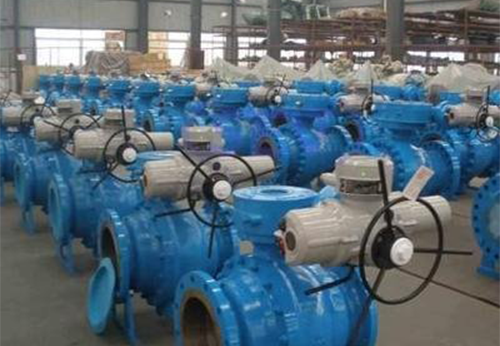Difference between electric hard seal ball valve and electric soft seal ball valve
Posted by Bundor valve
There are many types of ball valves. The corresponding working conditions are different according to the different structure, connection methods and valve body materials. However, among all types of ball valves, the sealing forms can only be divided into soft sealing and hard sealing.Due to the different sealing materials used, the performance characteristics of the products are different,so the applicable working conditions are naturally different.

1.From the price
Compared with the electric hard seal ball valve, the price of electric soft seal ball valve will be cheaper, and the cost is lower .
2.From the material
The electric hard seal ball valve adopts metal valve seat, mostly stainless steel+hard alloy,its processing accuracy and technical requirements are relatively high, and its application scope is relatively wide. It can be used in normal temperature, low temperature, high temperature and high pressure working conditions.
The valve seats of electric soft seal ball valves are divided into fluoroplastics, rubber, resin, etc, which are mostly used in the working conditions of normal pressure, normal temperature, and normal pressure, low temperature.
3.From the structure
(1)Electric soft seal ball valve is easy to achieve good sealing effect, and is resistant to corrosion, acid and alkali; The disadvantage is that it is not resistant to high temperature, the sealing surface is easy to wear, and the mechanical property is relatively poor.(It is used in normal temperature and pressure occasions with high sealing requirements or corrosive media and no particles)
(2)On the contrary, the electric hard seal ball valve is resistant to high temperature, abrasion, and has good mechanical performance. The disadvantage is that the sealing performance of this seal is poor.(Generally, hard seal ball valves are recommended for media with solid particles or wear, and the temperature is higher than 250 ℃)
4.From the valve leakage level
Hard seal valve: generally Class V, up to Class VI. Soft seal valve: generally Class VI.
The biggest problem with soft seal valves is poor wear resistance. After using for a period of time, if there are solid impurities in the liquid medium, the valve seat may be worn, resulting in increased leakage and decreased sealing performance.

1.From the price
Compared with the electric hard seal ball valve, the price of electric soft seal ball valve will be cheaper, and the cost is lower .
2.From the material
The electric hard seal ball valve adopts metal valve seat, mostly stainless steel+hard alloy,its processing accuracy and technical requirements are relatively high, and its application scope is relatively wide. It can be used in normal temperature, low temperature, high temperature and high pressure working conditions.
The valve seats of electric soft seal ball valves are divided into fluoroplastics, rubber, resin, etc, which are mostly used in the working conditions of normal pressure, normal temperature, and normal pressure, low temperature.
3.From the structure
(1)Electric soft seal ball valve is easy to achieve good sealing effect, and is resistant to corrosion, acid and alkali; The disadvantage is that it is not resistant to high temperature, the sealing surface is easy to wear, and the mechanical property is relatively poor.(It is used in normal temperature and pressure occasions with high sealing requirements or corrosive media and no particles)
(2)On the contrary, the electric hard seal ball valve is resistant to high temperature, abrasion, and has good mechanical performance. The disadvantage is that the sealing performance of this seal is poor.(Generally, hard seal ball valves are recommended for media with solid particles or wear, and the temperature is higher than 250 ℃)
4.From the valve leakage level
Hard seal valve: generally Class V, up to Class VI. Soft seal valve: generally Class VI.
The biggest problem with soft seal valves is poor wear resistance. After using for a period of time, if there are solid impurities in the liquid medium, the valve seat may be worn, resulting in increased leakage and decreased sealing performance.
 简体中文
简体中文 Русский
Русский Español
Español Bundor - Butterfly, Gate, Check, Ball, Globe Valve Manufacturer, Supplier & Distributor
Bundor - Butterfly, Gate, Check, Ball, Globe Valve Manufacturer, Supplier & Distributor
